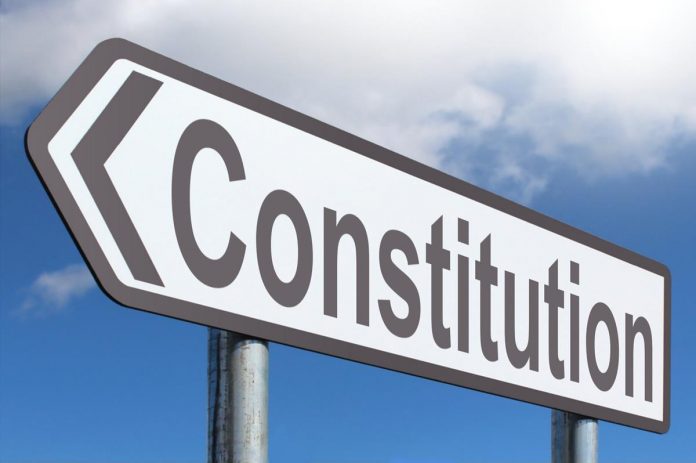This article has been written by Raksha Yadav, studying BBA.LL.B at ISBR Law College, Bangalore. The article gives an analysis of Article 74 of the Constitution, which deals with the Councils of the Ministers.
This article has been published by Sneha Mahawar.
Table of Contents
Introduction
India is a democratic country, and it follows secularism. There is a parliamentary form of government that consists of the Prime Minister along with his Council of Ministers. Article 74 of the Indian Constitution states that there should be a Council of Ministers, and the Prime Minister is the head of the Council. The Council aids the President in performing his functions smoothly. The judiciary can not inquire about the advice given by the Council. The Council consists of cabinet ministers, state ministers, and deputy ministers. The 42nd and 44th Amendments of the Constitution made it mandatory for the President to take advice from the Council of Ministers. Article 53 of the Constitution states that the President of India has executive powers which can be exercised directly by him or through his subordinate authorities. The President is the nominal and constitutional head of the country, but Article 74 says that the President has to follow the advice of the Council of Ministers, which thereby vests the executive powers in the Council of Ministers and makes the cabinet ministers have actual executive powers.
Amendments made to Article 74 of the Indian Constitution
The law is dynamic and it keeps changing as per the needs of society. The Indian Constitution came into force in 1950. For the welfare of the citizens and the smooth functioning of the government, it is essential to make certain changes to the statutes. Article 368 of the Indian Constitution provides the provisions of the amendments to the Constitution. There are a total of 104 amendments in the Constitution. In this section, we will discuss two major amendments relating to Article 74, i.e., the 42nd Amendment and the 44th Amendment of the Constitution.
42nd Amendment of the Indian Constitution
The Constitution (42nd Amendment Act) of 1976 is also known as the ‘Mini Constitution.’ It inserted some new articles and amended the existing ones in the Constitution. To access the list of the changes made in the provisions of the Constitution, click here.
Before the 42nd amendment, there was a provision which said that the Council of Ministers aids the President in exercising his powers, but it did not provide a provision which makes it binding on the President. Thus, such an amendment was made to the Constitution.
44th Amendment of the Indian Constitution
The Constitution (44th Amendment) Act, 1978 reversed the provision of the 42nd Amendment which says that the government can amend the Constitution as per their wish. After this Amendment, the President can ask the Council of Ministers to reconsider their advice, but the President is bound to act according to the advice given by the Council of Ministers after reconsideration. Earlier, there was no such provision that stated this.
To access the list of the changes made in the provisions of the Constitution after the 44th amendment, click here.
Appointment of the Council of Ministers
According to Article 75 of the Constitution, the President shall appoint the Prime Minister and, on the advice of the Prime Minister, the President will appoint other Ministers of the Council. The composition of the Council can not exceed fifteen per cent of the total number of members of the parliament. The appointed members must take an oath in the presence of the President. All the members of the Council are responsible to the house of peoples i.e., Lok Sabha. A member of the Council also must be a member of Parliament.
If any member is disqualified due to defection then they can not hold the position of minister no matter which House of the Parliament a political party member belongs to. A member who belongs to the House of Parliament and members of a political party who become disqualified due to defection will not be allowed to be named as Ministers for the Council.
In this case, Rai Sahib Ram Jawaya Kapur and Ors. v. In The State of Punjab (1955), it was stated that the President has executive powers, but Article 75 says a Council of Ministers would aid, along with the Prime Minister, to advise the President to exercise his power. The President will become the formal or constitutional head of the executive, and the ministers or the Cabinet will hold the actual executive powers.
In the case of Shamsher Singh & Anr v. the State of Punjab (1974), the Court held that the President and the governors of the state are only the formal and constitutional heads and they exercise their powers with the assistance of the Council of Ministers.
Qualifications of the ministers
A person who is going to be appointed as a minister must be a member of either the Rajya Sabha or Lok Sabha. If the person who is appointed as the minister is not a member of any House of Parliament, he has to become a member of Parliament within six months, otherwise, the person has to resign from his post of minister.
Salary and allowances of the members
The Parliament decides the salary and allowances for the ministers and government authorities according to Article 75(6) of the Constitution.
Each minister shall be entitled to receive salary as per annum along with residence, sumptuary, travelling, and daily allowances, motor vehicle, and medical treatment as mentioned in the Salaries and Allowances of Minister Act, 1952.
The sumptuary allowance (Section 5 of the Salaries and Allowances of Ministers Act, 1952) for the Prime Minister increased from Rs. 1500 to Rs. 3000 per month in 2001. The sumptuary allowance for a Cabinet Minister increased from Rs. 1,000 to Rs. 2,000 per month, for a Minister of State from Rs. 500 to 1,000 per month; and for a Deputy Minister from Rs. 300 to 600 per month.
How does the Indian government operate
Article 77 of the Indian Constitution states:
- In the name of the President, the Indian Government makes all executive decisions.
- The President may establish that the orders and other documents that are created and carried out in the President’s name must be authenticated.
- The order and the instrument, duly authenticated, cannot contest its validity.
- The President must pass regulations to make the government’s work easier to conduct and to distribute among the Council of Ministers.
Rights of the Council of Ministers
According to Article 88 of the Constitution, every minister and the Attorney General of India are entitled to speak and participate in the proceedings of either House. He may be named a member of any committee of Parliament and any joint session of the Houses, but he is not permitted to vote because of this clause.
Oath of the Council of Ministers
All the ministers and the Prime Minister take an oath in the presence of the President and swear to perform their functions with full integrity and in accordance with the Constitution. Diligently and faithfully carry out the responsibilities of his office, treat everyone fairly, and do so without favouritism, hatred, or any other form of bias according to the Third Schedule of the constitution.
Categories of the Council of Ministers
The Council of Ministers is broadly divided into three categories, which are as follows:
Cabinet ministers
The cabinet ministers are responsible for leading all the important ministries of the government, such as defence, finance, external affairs, and the home ministry. It plays a very important role in the formulation and execution of policies.
Ministers of state
These ministers work under cabinet ministers and do not have any charge of ministry independently.
Deputy minister
Deputy ministers work under the cabinet minister and ministers of state. They do not have independent authority to lead any ministry and assist the cabinet ministers and ministers of state.
Functions of the Council of Ministers
The functions and powers of the Council of Ministers are explained below:
Policy formulation
The Council of Ministers creates legislation and policies for internal and external matters. They take decisions and advise the President. State ministers and deputy ministers of the relevant department will be informed after the policy has been developed. It supports the cabinet minister’s effective management of the operations and implementation of the policies. They also participate in the parliamentary debate and cast their votes.
Executive power
The Council of Ministers monitors and controls the government departments. Government policy is set by the Council of Ministers, and departmental functions are executed in accordance with that policy. The Cabinet’s decision is implemented by the Council of Ministers. They keep the state in a state of peace and order. The Council of Ministers advises on all significant appointments.
Financial power
The Council of Ministers presents the Budget and Money Bills in Parliament. They also manage the expenses of the government’s policies and approve proposals for the projects initiated by the government.
Responsibilities of the Council of the Ministers
Collective responsibility
The word ‘collective’ means that all the ministers of the Council should stand together for all their actions and misdeeds. According to Article 75(3) of the Constitution, the Council of Ministers is collectively responsible for the Lok Sabha and they are also collectively responsible for the legislative assembly of the state as per the provisions of Article 164(2) of the Constitution. When any policy or bill is presented in parliament, it’s the responsibility of all the members of the Council to unite together, if there are any differences among the members they can not show their differences in the Parliament. If a no-confidence motion is passed against the Council of Ministers in the Lok Sabha or legislative assembly, then all the ministers have to resign. The decision made by the cabinet is binding on all the ministers.
In the case of S.P. Anand, Indore v. H.D. Deve Gowda & Others (1996), the Supreme Court held that the Council of Ministers is collectively responsible to the House of Parliament for supporting the democratic system’s efficient operation. If a minister disagrees with the Council of Ministers’ majority decision, he has two options: resign or accept the outcome.
Individual responsibility
The ministers are also responsible individuals, apart from collectively responsible. If a minister acts without the approval of the Cabinet or the Prime Minister, then individual responsibility is enforced and the action is criticised and condemned by Parliament. If a minister personally does such an act that is against the law and order or makes any statement against the Prime Minister, then he will ask to resign.
In the case of Secretary, Jaipur Development v. Daulat Mal Jain(1996), the Honourable Supreme Court held that each minister is responsible for all of his or her individual and collective actions, policies, and activities. They owe the public a duty of care and are liable. Their rights and obligations are governed by laws and regulations. Only the Department’s Minister bears moral and legal responsibility for the actions taken, duties performed, and rules put in place.
Legal responsibility
In the Constitution, there is no provision that deals with the legal responsibility of the Council of Ministers. Further, the advice that is given to the President by the Council of Ministers is not questionable by the courts.
In the case of S.P. Gupta v. President of India and Ors. (1981), the Supreme Court stated that the advice that the Council of Ministers provides to the President can not be inquired into before the court but that the materials on which the Council of Minister’s advice to the President is based are not secret and can be examined by the courts.
In the case of S.R. Bommai and Others Etc. v. Union of India and Others Etc. (1994), the Supreme Court held that the advice that has been given by the Council of Ministers is barred from questioning by the court but does not hold back any information or documentation from the court’s review.
Conclusion
The Indian Constitution adopted parliamentary democracy for this nation from the United Kingdom. In a parliamentary democracy, the Prime Minister and his cabinet, who are frequently chosen from the majority party in Parliament, are given the real power of governing. The head of the State remains the constitutional head of the State in such a democracy, whether it be the King or the President. He follows the advice and guidance provided to him by the Council of Ministers, which is led by the Prime Minister.
Article 74 of the Constitution provides a provision to constitute a Council of Ministers to give aid to the President. A dictatorship will be established if authority is given to one individual. India is a democratic and republican country, and the powers are well divided among the appropriate authorities. The Constitution of India borrowed the cabinet system from the British Constitution (the British Constitution is not written down). In Britain, it is generally acceptable for the monarch to follow the Ministers’ proposals. Therefore, in India, the President is the nominal head, but he is bound to follow the advice given by the Council of Ministers.
Frequently Asked Questions (FAQ)
What is the qualification of the Prime Minister?
A person who is a citizen of India, a member of the Lok Sabha, or a Rajya Sabha can become Prime Minister.
Which provision of the Constitution states the duties of the Prime Minister?
Article 78 of the Constitution lays down certain duties of the Prime Minister, such as communicating decisions to the President and providing information about the Union administration and legislative proposals that the President may request.
What are the powers of the President of India?
The President has executive, legislative, emergency, financial, and judicial powers.
What is the difference between the Council of Ministers and the Cabinet?
The Council of Ministers consists of cabinet ministers, state ministers, and deputy ministers, whereas the cabinet consists of all the ministers of important and major ministries. The Council of Ministers has 70-80 whereas the cabinet has 15-20 members. The Council of Ministers is responsible for carrying out decisions made by the Cabinet.
What are the constitutional provisions for the State Council of Ministers?
Article 163 of the Constitution states that there shall be a Council of Ministers headed by the Chief Minister that gives advice to the Governor of the state.
References
- The Council of Minister article 74 and 75 | Law column
- List of Cabinet Ministers of India and their Portfolios 2021 (elections. in)
- Council of Ministers: Formation, Working Principles and Problems (politicalsciencenotes.com)
- What are the powers and functions of Council of Ministers? (publishyourarticles.net)
- Council of Ministers: Appointment, Organisation, and Functions (yourarticlelibrary.com)
- https://prepp.in/news/e-492-borrowed-constitution-indian-polity-notes#sources
- https://www.parliament.uk/site-information/glossary/royal-assent/
- J.N. Pandey, Constitutional Law of India, Central Law Agency, 56th Edition,2019
Students of Lawsikho courses regularly produce writing assignments and work on practical exercises as a part of their coursework and develop themselves in real-life practical skills.
LawSikho has created a telegram group for exchanging legal knowledge, referrals, and various opportunities. You can click on this link and join:
Follow us on Instagram and subscribe to our YouTube channel for more amazing legal content.
 Serato DJ Crack 2025Serato DJ PRO Crack
Serato DJ Crack 2025Serato DJ PRO Crack














 Allow notifications
Allow notifications


